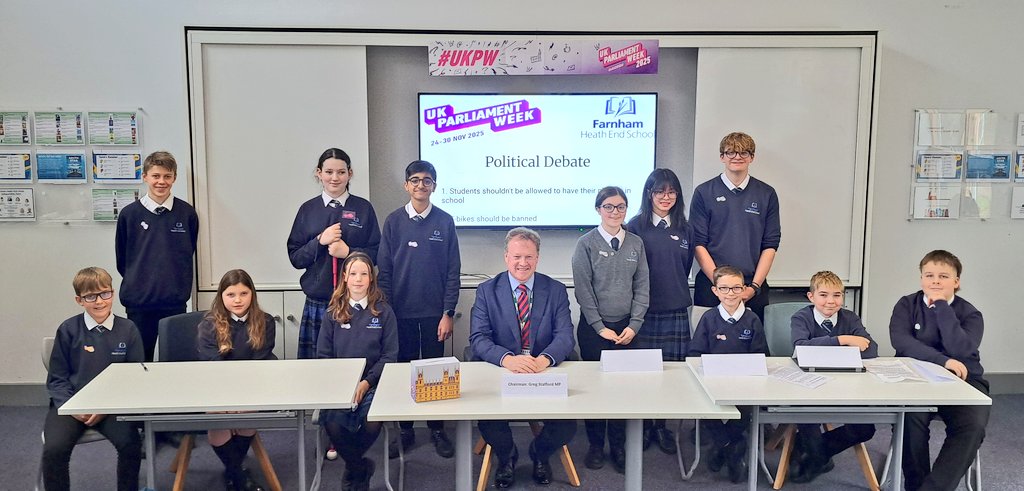 @TeamFHES - 6/01/2026Live at Heath End School: Wallace & Gromit performed by the Farnborough Concert Orchestra.
Saturday 7th Feb at 2:00 PM, with another at 4:00 PM
Tickets are strictly limited to just 200 seats each. Book early to avoid disappointment.
Get tickets: farnboroughconcertorchestra.…
@TeamFHES - 6/01/2026Live at Heath End School: Wallace & Gromit performed by the Farnborough Concert Orchestra.
Saturday 7th Feb at 2:00 PM, with another at 4:00 PM
Tickets are strictly limited to just 200 seats each. Book early to avoid disappointment.
Get tickets: farnboroughconcertorchestra.…Subject Information - Statistics
VISION / AIM
Our aim is to inspire the students to extend their mathematical and data analysis skills to understand variance in real life and how they can use Maths to explore it. We will enable all students to perform enquiries based upon the Data Handling Cycle.
Resources and support materials can be found on Google Classroom.
Further information can be requested from Mrs R Isaacs, Head of Department, risaacs@fhes.org.uk
GCSE STATISTICS EXAM BOARD
|
Exam Board |
EDEXCEL |
|
|
Paper 1 |
1hr30 |
Papers assess all content. |
|
Paper 2 |
1hr30 |
|
|
Link to the Specification |
https://qualifications.pearson.com/content/dam/pdf/GCSE/Statistics/2017/specification-and-sample-assessments/gcse-9-1-statistics-specification.pdf |
|
Teaching Schedule
This provides an overview of the schedule. For more details on individual topics, please refer to the specification above. All topics fit into the statistical enquiry cycle. The skills broadly covered are:
- The collection of data.
- Processing, representing and analysing data.
- Probability problem solving.
|
|
Autumn Term |
Spring Term |
Summer Term |
|
Year 9 |
What is a Statistic? Types of data. Data collection strategies. Practical activities involving survey and sampling design. Averages and range 1. |
Statistical diagrams. Full range of diagrams (for example choropleth maps). Correlation 1. Scattergraphs and lines of best fit. |
Chain base and simple index numbers. Time series and moving averages. Probability 1 covering the overlap between GCSE Mathematics and GCSE Statistics probability work. |
|
Year 10 |
Quality assurance. Birth rates and death rates. Correlation 2. Spearmans, Pearsons correlation coefficients. |
Comparative pie charts. Cumulative frequency, box and whisker. Also this will include the calculation of outliers. |
The Normal Distribution. This will cover the full range of topics including Standard Deviation, standardised scores. |
|
Year 11 |
Probability 2. Leading to the Binomial Theorem. This will include experimental work. |
Combinations of topics at the more sophisticated level. For example different calculations of skew. |
Revision. |













